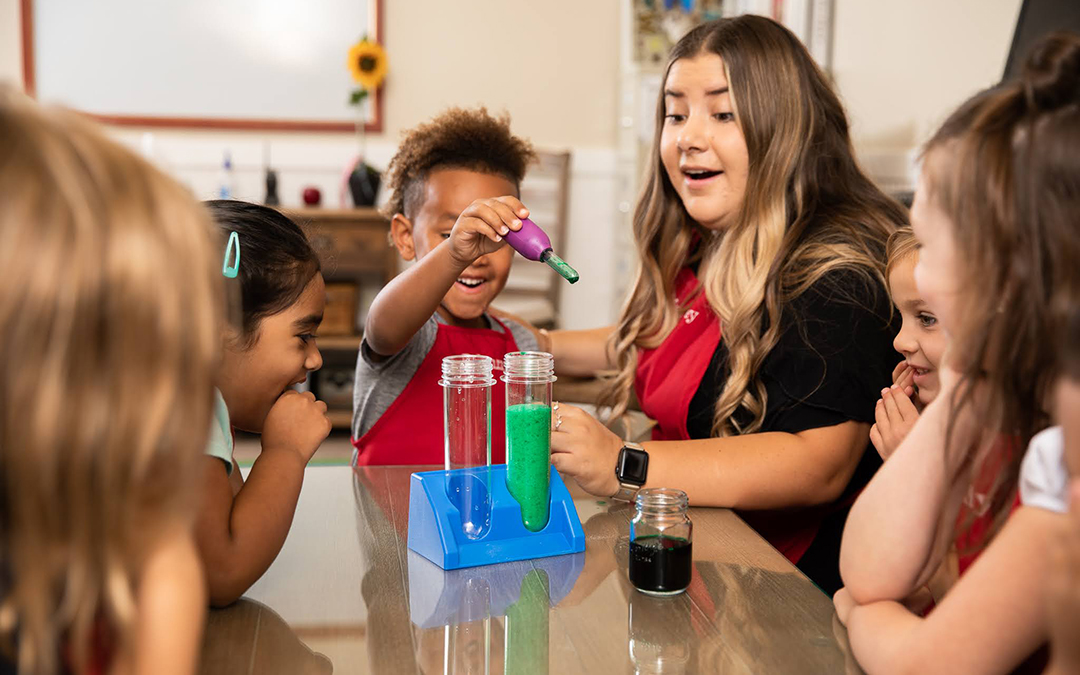Experts agree that preschool, usually defined as the one to two years before kindergarten, increases what your child gets out of every grade afterward. A 2009 study found that preschool increases the likelihood of high school graduation and college acceptance. So we agree that it’s important, but when should it start?
What to Look For
Most preschools set a minimum age for when they accept kids. Typically they have to be at least 3 before the school year ends, but some allow kids as young as 2. The average seems to be around 2.5-3. And why is it so important? According to Harvard Health, “Child-development experts recommend that all children, by 3 years of age, spend time regularly with other kids of the same age”.
Interactions with Other Children
Socializing early helps kids develop the many skills they’ll need later in life. It teaches them how to share, compromise, be kind to others, and just generally get along. Before they start interacting with kids regularly, it’s a good idea to gauge whether they’re ready to do that for an extended time. Do they share? Can they take turns? Do they listen to you when you give them directions? Do they know how to ask politely?
It’s okay if they’re not perfect at it yet; after all, that’s part of what they’ll be learning in preschool. But if they haven’t developed ANY of those fundamental skills, you might consider waiting. And remember to be patient with yourself, too! Try making it fun by playing cooperative games: build a tower together, play follow the leader, or try putting a puzzle together.
Ability to Spend Time Alone
You’re probably both going to feel a bit of separation anxiety, especially if you’ve never left them for a long time before. But if they’re unable to even spend a few hours away from you with a babysitter or a family member, they most likely won’t be able to handle a full day away.
It’s fully possible, however, to train both yourself and your child to get ready for this time apart. Visit their new preschool with them before their first day. Kids always crave consistency, too, so develop a goodbye routine that will help ease the transition. Practice being apart by arranging playdates or a day out with grandma and get them used to those goodbye rituals while you’re at it. If they get used to saying goodbye, they’ll more readily trust you when you say you’re coming back.
Potty Training
A lot of schools recommend or require it anyway for both hygiene and safety; Kid’s Village just asks that you help us stay updated on their progress. Since we’re not a daycare facility, though, we can’t perform any diaper changes.
If you think they’re ready, take a tour of the facilities and practice going potty there. Engage with their teacher and let them know about your concerns; they’ll be able to help. Worst case scenario, you can always use potty training pants like pull-ups.
Bottom Line
You know your child best. You can use these suggestions as guidance, but at the end of the day, trust yourself to know when they are or aren’t ready. Just know that Kid’s Village also has your child’s best interests at heart and will happily discuss any questions or concerns you may have when you start this big transition.

